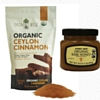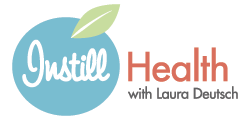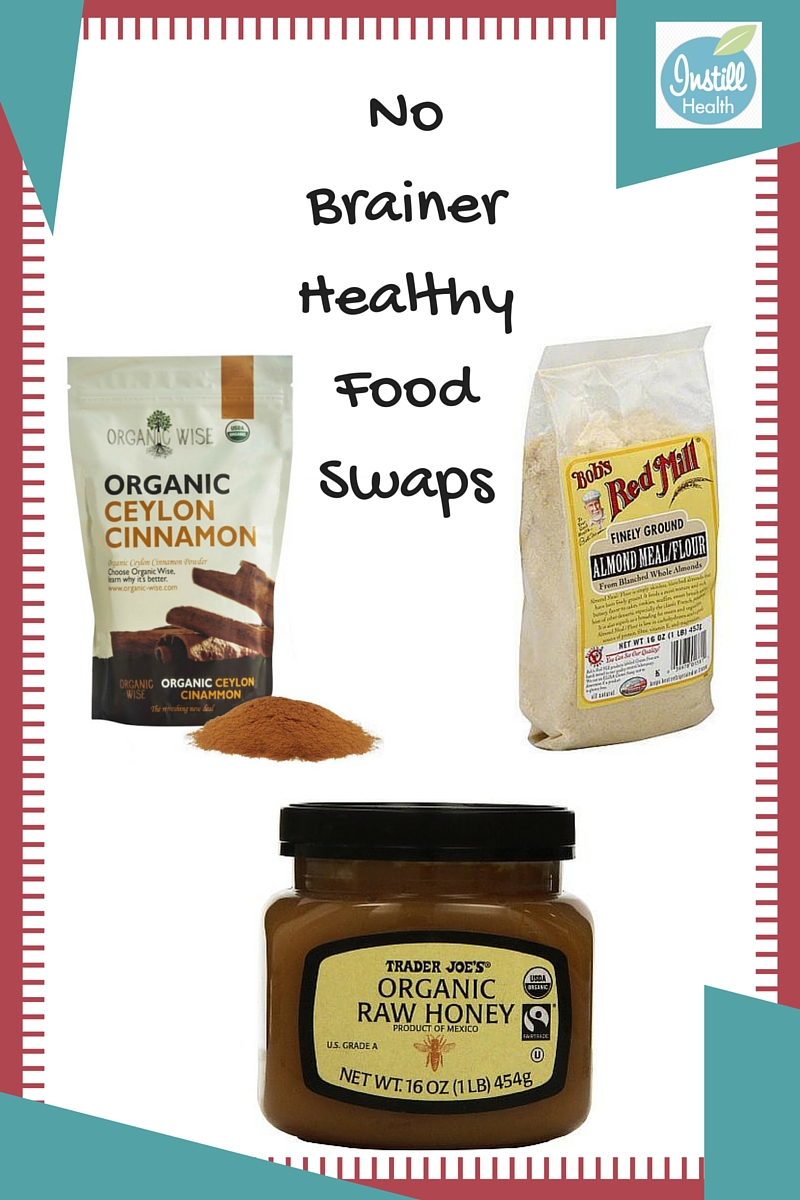
Be honest. Did you make any resolutions for 2016 that involved eating better?
Did you know that 88% of health related resolutions are broken by the second week in January??
Today’s post is dedicated to making sure you end up in the successful 12%. And this can happen if you decide to take on the following resolution:
I will commit to substituting certain every day foods with healthier versions.
Here are 3 common foods you can EASILY replace with healthier upgrades. And I have no doubt you will be able to keep this resolution not only through the second week of January, but FOREVER.
1. Raw, organic honey instead of regular honey or sugar as a sweetener
Let’s face it. We are a society addicted to sugar. And this is NOT a debated issue. SUGAR IS BAD! No way around it. Sugar has absolutely zero nutrients.
Luckily, there is a sweetener out there that is known for having health benefits: honey. But unfortunately most honeys sold in supermarkets have been pasteurized (a process that destroys microorganisms with heat) which removes any of the benefits associated with honey. You may as well be eating pure sugar.
Enter raw, organic honey.
Raw, organic honey is not processed nor pasteurized and thus retains the ‘good stuff.’ The good stuff includes natural enzymes, vitamins including B2, B3, B5, B6, and C, potassium, zinc, magnesium, calcium and iron.
Real, raw honey contains propalis (a substance used by the bees to protect the honey against organisms) which has antifungal benefits. Raw honey supports good bacteria, has powerful anti-microbial and anti-inflammatory properties, and is an excellent source of antioxidants.*
I find raw, organic honey in Whole Foods and Trader Joe’s. You most likely will not find it in main stream supermarkets.
Important note: even raw, organic honey has sugar in it so you should eat it sparingly. The message I want to convey is that if you are going to use a sweetener, you might as well use one that actually has some health benefits, too.
Another important note: You have to be careful when using raw honey with hot foods. If you use raw, organic honey in hot drinks or foods, you can destroy the benefits. You need to wait for your drinks and foods to cool a bit to a drinkable/eatable temperature, specifically 95 degrees fahrenheit.
*It is not safe to give babies under one year honey because very occasionally, it can contain bacteria that can cause a rare form of food poisoning in babies.
2. Almond flour instead of white flour when baking
Many baking recipes call for flour. White flour is another nutritional waste. White flour is wheat flour that has been stripped of the two main (healthy) components – the bran and the germ – and is devoid of fiber. It raises your risk for diabetes as well as many other preventable diseases. White flour is highly processed. It is actually bleached with a chemical bleaching agent to make it appear bright white. Basically, white flour is bad news.
Enter almond flour.
Almond flour (also known as almond meal) is gluten free, high in fiber, high in protein, and rich in vitamins and minerals. The only ingredient in almond flour is ground, whole almonds with the skin removed. Almonds are also beneficial for heart health and lowering cholesterol.
The consistency of almond flour is similar to that of regular flour, but yellower and not as fine. It substitutes PERFECTLY for flour when baking. So if a recipe calls for one cup flour, just use one cup almond flour. And if you are skeptical about taste, perhaps you try substituting half of the white flour for almond flour at first and see how you like it. I happen to love the taste of baked goods with almond flour, and hopefully you will too!
3. Ceylon cinnamon instead of regular cinnamon
Cinnamon has many health benefits. It is loaded with anti-oxidants, has anti-inflammatory effects, and reduce heart disease risk factors.
However, the cinnamon you are most likely purchasing in the supermarket is called cassia cinnamon. Unfortunately, cassia cinnamon also contains a compound called coumarin, which has shown to be toxic to the liver and kidneys, which defeats the purpose of eating cinnamon for health purposes.
Enter ceylon cinnamon.
Ceylon cinnamon actually comes from a different plant than cassia cinnamon, and is frequently referred to as ‘true cinnamon.’ It is milder in flavor (and in my opinion, much yummier) and does not contain coumarin.
In summary, healthier upgrades for 2016 include raw, organic honey, almond flour, and ceylon cinnamon. Just be sure to remember this post when you run out of what you already have at home and it’s time to buy more!
If you enjoyed this article and want to get great tips like these delivered right to your inbox, please click here and enter your email to begin receiving weekly updates from Instill Health. Also, be sure to like us on facebook because you will find amazing recipes there that are not posted on the Instill Health website.

